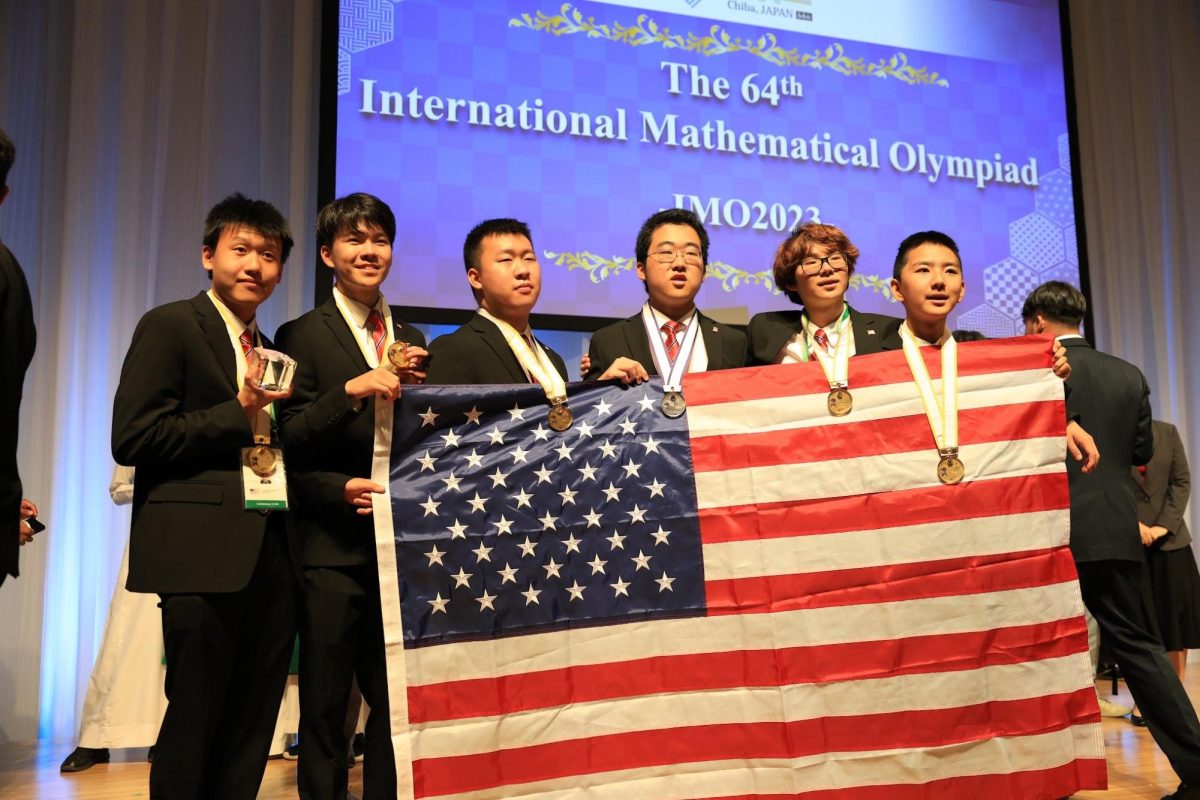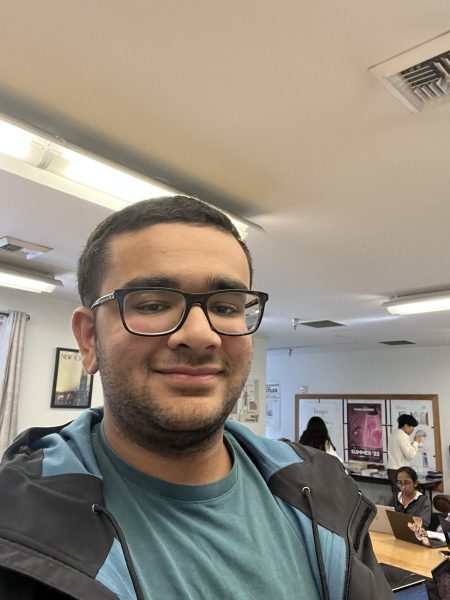Tokyo, Japan. July 2023. Alex Z. ’24 walks onto the stage and leaves with a gold medal around his neck with a score of 35 — equivalent to full points on all questions apart from the last. He continued a long legacy of Lakeside mathematical excellence — and wasn’t even the only Lakesider at this year’s International Math Olympiad as the U.S. team’s deputy leader, Carl Schildkraut, graduated from Lakeside in 2019.
Rohan D. ’25 (RD): Summarize your experience.
Alex Z. ’24 (AZ): With five other students from the U.S., we flew to Japan to participate in a math contest with people from other countries. A big feature of the experience is that we get to meet and talk to contestants from other countries who are among the strongest from their respective countries. I hung out with members from the German team a lot, and I got to know all the Germans.
RD: What were your favorite and least favorite moments from the experience overall?
AZ: Definitely going to the Japanese hot baths with the German team one evening — they’re unsurpassed in quality. As for my least favorite, I got sick three days before the contest, and this quite nearly did me in.
RD: What was the craziest thing you did that week?
AZ: Around 11 p.m., I went swimming in the ocean with some other contestants — we just walked through the hotel, onto the beach and jumped into the ocean. There was this one Irish guy who taught us a game that he learned in Ireland: You have two teams of two, and one person sits on top of the other person’s shoulder, and then, in the face of the waves, you try to push the other team over. And that was a lot of fun, but it was also crazy, especially in the dark of night.
RD: Pivoting a bit to the test. Could you describe it in nontechnical terms?
AZ: The test format is two days, four and a half hours each day. Three problems for each day. The idea is you want to write out a proof for some kind of statement as opposed to trying to simply find the answer to some given question. Mental stamina is often the key part because of the test’s duration and the difficulty of the problems. They had pretty strict anti-cheating policies. They checked our bags before I walked into the building. At one point I even got caught trying to accidentally bring a protractor into the building because protractors are not allowed on the test. During the test, there’s this really surreal feeling when, throughout the entire exam hall for four and a half hours, you can hear the echoes of people coughing and scribbling and erasing.
RD: What would you say your biggest difficulty was during the test, and how did you overcome it?
AZ: The problems usually increase in difficulty by no small amount. And usually the goal is to solve the first problem as fast as you can, to solve the second problem within a reasonable amount of time and then to spend as much time as possible focusing really hard on the third problem.
The optimal goal is to solve all three, but two solves is alright as well. So I distinctly remember on the second day, I solved the first problem pretty quickly, but I got stuck on the second problem for three and a half hours. Once I realized I spent three hours on this problem, I was thinking, “Shoot! I have little more than one third of the time remaining. I haven’t made any serious progress.” So I went back and consulted a list that I had drafted earlier of all the ideas I could try, and I picked the craziest one on that list, and it turned out that it worked.
So, to say another cliché, think outside the box, try the crazy ideas. You never know what will work until you try it.
RD: Did your experience at Lakeside influence your IMO qualification and performance? If so, how?
AZ: During the second round of qualification tests in January, I explicitly remember there was one problem in which I had a moment when I realized, “Oh my god, here I can use an idea that I learned from linear algebra,” and that was kind of a crazy moment. Of course, the rigor of the proofs that are required in submissions to these contests is also something that’s pretty well emphasized in Lakeside mathematics classes. One teacher I’d like to call out is Ms. Badus. She’s given me a lot of direction and assistance, and she’s very encouraging of my participation. I’d also like to call out Mr. Ballard — he’s Lakeside’s competitions organizer, and he helped facilitate the logistics for the qualification tests that I took last year.
RD: What future, if any, do you see for yourself in math competitions? Not just for next year, but as you continue through college and perhaps beyond?
AZ: I’ll probably still be involved in math competitions to some extent in this coming school year. I’m also pretty involved with some local mathematics events in the Seattle area. There are also some international contests that are available for college students as well, and I can also contribute to writing problems for existing high school competitions.
RD: Would you like to offer any advice to readers of the Tatler who might want to get started in math competitions but are perhaps hesitant to do so?
AZ: Math competitions can look very different depending on what stage you’re at, but I think the most important part, no matter what level you’re at, is to read the solution carefully and make sure you understand how it could be possible for you to think of that solution during the contest in a reasonably short amount of time. There’s usually some framing, mindset or perspective that makes a solution pretty clear, and the goal is to train yourself to be able to find that mindset pretty quickly.


